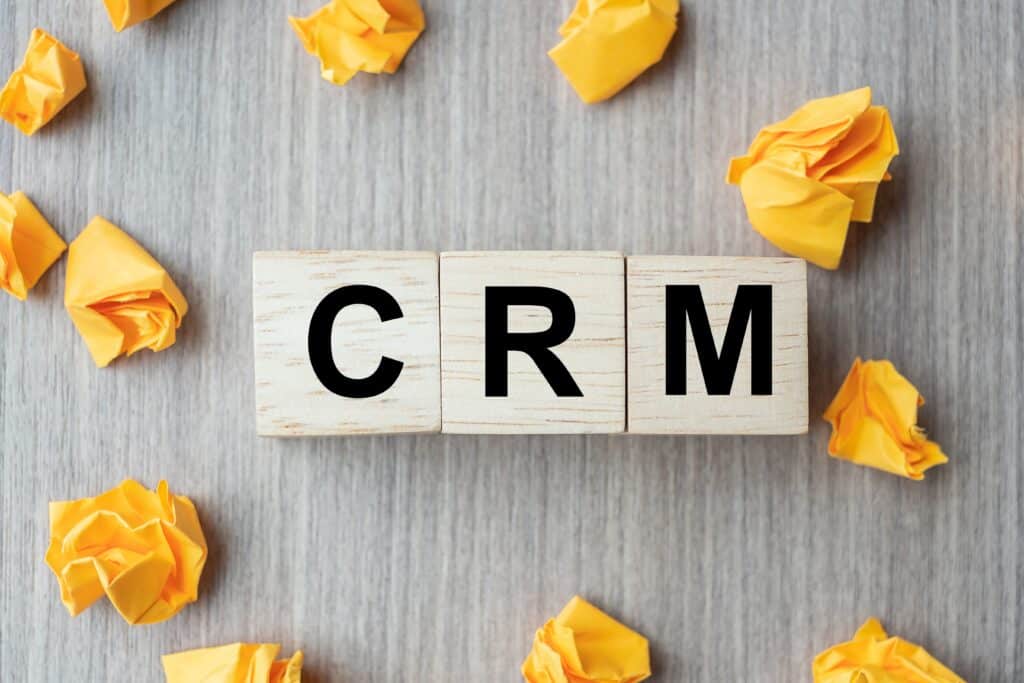CRM, or Customer Relationship Management software, helps business owners track all communications and nurture relationships with clients and potential clients.
CRM software replaces the many spreadsheets, databases and apps that some businesses patch together to track client data. What is the result of an effective CRM system? Better organisation, efficiency, better time management, and impressed clients.What does CRM software do?
CRM software records customer contact information such as email, telephone, website, social media profile, and more.
It can also automatically pull in other information, such as recent news about the company\’s activity, and store details, such as a client\’s personal preferences on communications. The CRM system organises this information to give you a complete record of individuals and companies, so you can better understand your relationship over time. CRM software improves customer relationship management by creating a 360° view of the customer, capturing their interactions with the business, and surfacing the information needed to have better customer conversations.Why is having a CRM system important?
CRM enables a business to deepen its relationships with customers, service users, colleagues, partners and suppliers.
Forging good relationships and keeping track of prospects and customers is crucial for customer acquisition and retention, which is at the heart of a CRM\’s function. You can see everything in one place — a simple, customisable dashboard that can tell you a customer\’s previous history with you, the status of their orders, any outstanding customer service issues, and more. If your business is going to last, you need a future strategy. For forward-thinking companies, CRM is the framework for that strategy.How do different business functions benefit from having a CRM system?
While the importance of CRM has traditionally been as a sales and marketing tool, some of the most significant gains can come in other areas, such as customer service, HR, supply chain and partner management.
Here\’s how different business functions benefit from using CRM:Sales teams can use CRM software to understand their sales pipeline better
Sales managers can access reliable information about the progress of individual team members in achieving their sales targets, for example, and see how well individual sales teams, products and campaigns are performing.
Sales reps benefit from reduced admin, a deeper understanding of their clients, and the opportunity to spend more time selling and less time inputting data.Marketing teams can use CRM to make forecasting simpler and more accurate
They can get clear visibility over every opportunity or lead and map out the whole customer journey from enquiry to sale, giving them a better understanding of the sales pipeline or prospective work coming in.
It\’s also possible to include information from customers\’ public social media activity – their likes and dislikes and their sentiments about specific brands and businesses.Customer service teams can effectively track conversations across channels
A customer might raise an issue in one channel – say, Twitter or Facebook – but then switch to email, phone or live chat to resolve it privately.
Without a common platform for customer interactions, communications can be missed or lost in the flood of information – leading to an unsatisfactory response to a valued customer.Supply-chain, procurement, and partner management teams can manage relationships better
They can track meetings with suppliers and partners, record requests, add helpful notes, schedule follow-ups and stay on top of expected next steps.
Reporting enables businesses to compare the efficiency of suppliers and so manage their entire supply chain more effectively.The HR team can use CRM to accelerate recruitment and track employee performance
CRM can help the HR function by speeding up the onboarding process, automating the process of managing candidates, analysing resourcing needs and identifying skills gaps, and supporting the pursuit of staff retention targets.
Consider how convenient it would be to consolidate all the data streams from sales teams, customer service staff, marketers and social media—and translate them into actionable business information. A CRM platform lets you manage these data streams across channels without losing track and gives sales, service, marketing, and beyond an integrated view.What are the different types of CRM systems?
Operational CRM systems
A sales plan lays out the business\’s objectives, strategies, and goals by selling goods or services.
It must include the required details on the target audience, current customers, revenue goals, market conditions, financial targets, the structuring of the team, pricing, and tactics used.Analytical CRM systems allow companies to use data like:
- customers\’ interaction history
- preferences
- contact information
To better understand their behaviour and modify business processes to drive desired outcomes.
Some examples of analytical CRM processes include data warehousing and data mining, where companies review data in aggregate to discover patterns and gain insight.Collaborative CRM
Collaborative CRM systems can help your marketing, sales, and customer service teams cross-reference customer interaction data.
This helps provide a complete picture of each customer\’s wants and needs and how they prefer to interact with your organisation. Some examples of collaborative CRM processes include interaction management, which tracks customer communication across multiple channels, and channel management, which uses that data to help companies decide how to engage with their customers. Consider this CRM if your employees live remotely or your customers\’ interactions with your company are primarily digital.What is the CRM cycle?
Reach:
The marketing team drives brand awareness through effective audience segmentation and delivery of compelling campaigns and content. Customer Acquisition: Getting prospects to take a \”next step\”, such as downloading a document on your website, signing up for a webinar, or filling out a form. Conversion: Conversion occurs whenever a lead becomes a customer by completing a purchase, whether through the sales team or via self-service, like an online ordering portal. Retention: Once you have customers, you must ensure they stick around. Provide top-notch customer service and support to ensure that customers return to you repeatedly. Loyalty: This means more than repeat purchases. Your most loyal customers will expand their stake in your company. For example, they may upgrade to a higher service tier or buy a product that complements their original purchase. If you have a CRM system in place, you can help drive these upsells with customised recommendations.Why should I invest in a CRM system for my business?
If you can articulate a clear definition of what a CRM success story would be for your business, you\’re already on the right track. Some other signs it\’s time to consider a CRM for your business:
- Your sales team needs help knowing which leads to prioritise.
- You need real customer data.
- You need visibility into your sales team activity.
- You spend more time putting together reports than you do analysing them.
- You don\’t know what\’s next for your business.
Depending on the size of your organisation, you should also ensure you have buy-in from executives, a dedicated project lead, and (of course) a budget.
Can I grow my business using CRM software?
Studies show that CRMs can improve your company\’s conversion rates by up to three hundred per cent. So you can grow your business with a CRM – provided you select the system best aligned to your business needs.
How do I choose CRM software?
Your CRM system should speak to your business\’s needs. The relevance to your business is the main priority.
Next, your CRM software provider should have a hands-on approach to assist you with challenges with the software and training to help you get the most out of the system you\’re paying for. Read more about choosing the right CRM software for your company here. Are you interested in benefitting from a CRM system for your business as soon as possible? Contact us today to learn more about BaseCloud CRM, the most advanced CRM software in South Africa.




